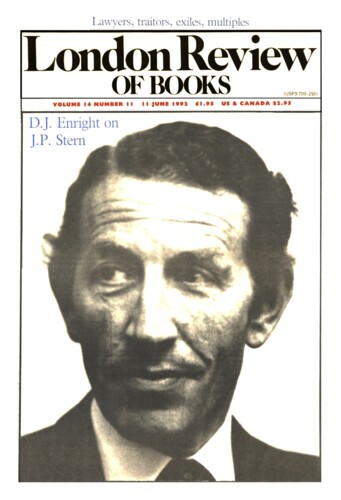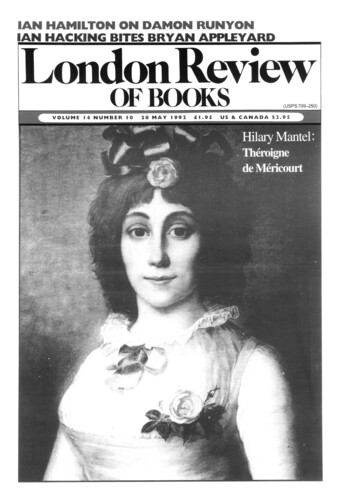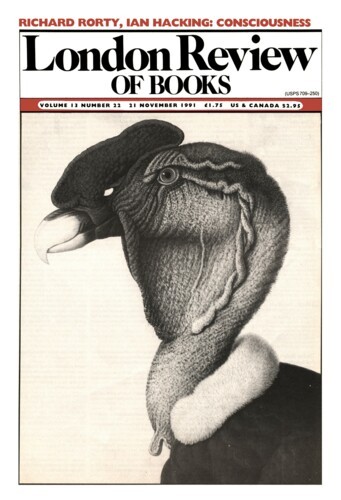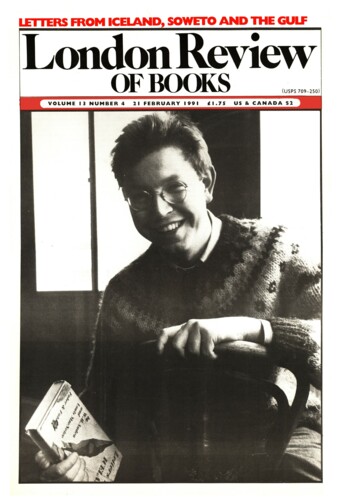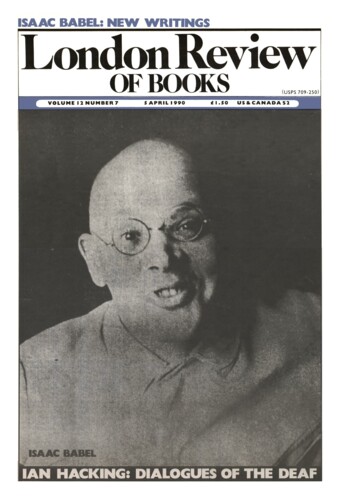Severals
Ian Hacking, 11 June 1992
Stephen Braude is a philosopher who thinks that the phenomenon of multiple personality teaches something about the human mind. Until recently he would not have had much of a phenomenon: a thin diet of 19th-century anecdotes, a little flurry of cases in France after 1875, and a few more described at greater length in America after the turn of the century. Or he could have resorted to the Doppelgänger of romantic literature, well enough covered in past issues of the London Review, and analysed in that amazingly many-layered book Doubles by its co-editor, Karl Miller. But something new and strange has been happening in North America – a veritable epidemic of multiple personalities. It began about 1972. It was called an epidemic by one psychiatrist in an essay published in 1982. By 1992 the disorder is flourishing. Not that there is any consensus that there ‘is’ such a condition. There is what can only be called a multiple personality movement built roughly as a pyramid. At the top is a relatively small number of dedicated psychiatrists who diagnose literally hundreds of patients. Then there is a larger number of clinical psychologists who recognise some of their clients as multiples. Next, at least in some regions, there is a very substantial number of social workers who find the condition in their case work. And finally there are the multiples themselves, some of whom organise themselves into self-help groups, publish newsletters and the like.’
